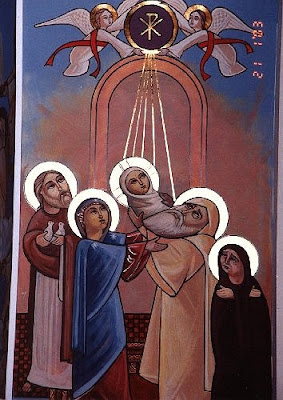(Psalm 27: 8-9)
From the time I can recall the religion classes our parish priests and sisters would teach, there was a particular and powerful gem they presented to us. They taught us that within each of us there is the reality of God. Within each of us there is the life of God and, as children of God, we possessed something of God’s life. Imagine how we understood those classes! “Swish....right over our heads.” Yet, now, many decades later, are we any the wiser? Do you believe what our priests and nuns taught us? Is it not reasonable to ask how many followers of Jesus actually believe this teaching or even know it? Because we encounter so much evil and sin in our world, in our culture today, it would seem to be a true to state that many have never accepted this teaching or have forgotten it.
During the last two weeks we have been witnesses to several moment of personal transfiguration. You may have read about these extraordinary moments in your local newspapers or watched them on your television. Recall the young woman figure skater ... she won a bronze medal that she might not have been expected to win. Only three days before her extraordinary performance, her mother, present with her father and family, suddenly died. On the night of her final attempt to medal, she skated as if she were transfigured -- she became transfigured in the artistic movements and music. There were several other such moments when a competing athlete’s mind and body worked in extraordinary unison. They were, we might say, in complete awareness of God-given talents. They were making real the presence of God’s gift to them at that moment in their lives.
How and when can you experience that same transfiguring moment? The Bible is a treasury of ordinary Marys and Joes who dialog with God: they listen to and speak with God. Heavenly communications does exist -- and you do not get a bill from a local service provider.
“When?” you are, I hope, asking or thinking. No doubt you might be saying, “When did God speak to me? How can I know when that happens.” First, know this: not even Rosetta Stone has developed a program for learning to speak and understand divine conversation. Second, God speaks to us in a very different language which is peculiar to you and your heart. His is a language we can easily miss, however. Did you ever feel a simple desire to be with God, a moment or two to thank him, a time to ask for help for yourself or another? If you did, he was at that time initiating the conversation. Was there a time when you felt a particular emotion after receiving Holy Communion? What about the time you felt called to help someone you know or even a helpless stranger?
These are the moments -- and many others like them -- when God wants to talk with you. These are the moments when we know that our Creator God, our Savior or the Holy Spirit is speaking to you. It is the moment of your transfiguration if you can find the time to answer the invitation.
(Matthew 17:5)
























